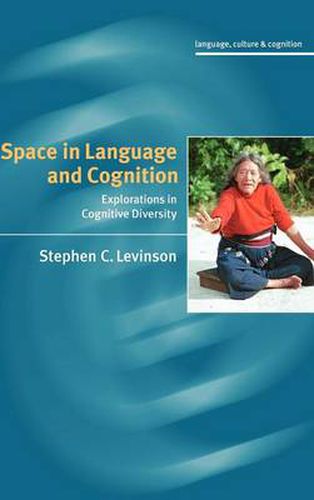Readings Newsletter
Become a Readings Member to make your shopping experience even easier.
Sign in or sign up for free!
You’re not far away from qualifying for FREE standard shipping within Australia
You’ve qualified for FREE standard shipping within Australia
The cart is loading…






Languages differ in how they describe space, and such differences between languages can be used to explore the relation between language and thought. This book shows that even in a core cognitive domain like spatial thinking, language influences how people think, memorize and reason about spatial relations and directions. After outlining a typology of spatial coordinate systems in language and cognition, it is shown that not all languages use all types, and that non-linguistic cognition mirrors the systems available in the local language. The book reports on collaborative, interdisciplinary research, involving anthropologists, linguists and psychologists, conducted in many languages and cultures around the world, which establishes this robust correlation. The overall results suggest that most current thinking in the cognitive sciences underestimates the transformative power of language on thinking. The book will be of interest to linguists, psychologists, anthropologists and philosophers, and especially to students of spatial cognition.
$9.00 standard shipping within Australia
FREE standard shipping within Australia for orders over $100.00
Express & International shipping calculated at checkout
Languages differ in how they describe space, and such differences between languages can be used to explore the relation between language and thought. This book shows that even in a core cognitive domain like spatial thinking, language influences how people think, memorize and reason about spatial relations and directions. After outlining a typology of spatial coordinate systems in language and cognition, it is shown that not all languages use all types, and that non-linguistic cognition mirrors the systems available in the local language. The book reports on collaborative, interdisciplinary research, involving anthropologists, linguists and psychologists, conducted in many languages and cultures around the world, which establishes this robust correlation. The overall results suggest that most current thinking in the cognitive sciences underestimates the transformative power of language on thinking. The book will be of interest to linguists, psychologists, anthropologists and philosophers, and especially to students of spatial cognition.